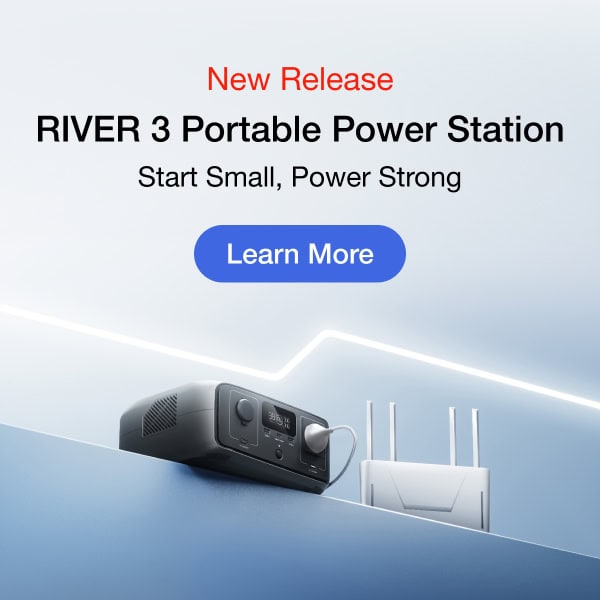Solar photovoltaic (PV) systems are complex and require many components working in tandem to capture, convert, and store power from the sun as AC electricity.
Solar panels are an essential part of any grid-tied or off-grid PV solution.
But without a balance of system, they’re essentially useless.
Balance of system is a catch-all term for all the components — besides PV panels — that a solar power system requires to function.
Balance of system components for solar solutions typically include:
- Inverter
- Solar Charge Controller
- Solar Battery (required for off-grid systems, optional for grid-tied)
- Battery Management System (BMS)
…and more.
Find out what components besides PV panels you need for your solar power system’s safety, functionality, efficiency, and reliability.

What Does Balance of System (BOS) Mean?
Balance of system refers to all equipment required to operate and integrate PV panels into a grid-tied or off-grid system. The BOS includes all of the components of a PV system except for the solar panels themselves.

What Are the Key Components in the Balance of System for a Solar PV System?
Every solar energy system has different hardware requirements depending on the intended usage, location, and other factors. Most PV systems will utilise some or all of these critical components in the balance of system:
- Solar Battery: For off-grid systems, a solar battery bank is required to store the energy produced by the PV panels. Solar batteries provide optional backup for grid-tied systems in case of a power outage.
- Solar Inverters: An inverter converts the DC electricity produced by photovoltaic panels into the AC electricity used in homes.
- Charge Controller: A solar charge controller regulates the voltage and current from the solar panels into the solar battery.
- Battery Management System (BMS): A BMS protects your solar batteries from undercharging, overcharging, and helps optimise performance and efficiency. An advanced BMS increases the lifespan of Li-ion and LiFePO4 (LFP) solar batteries and ensures they deliver peak performance.
- Mounting Hardware: To safely and securely install PV panels, your application will need the proper mounting hardware.
- Wiring: To connect all your components, high-quality wiring and cables of the proper gauge are required.

What Does the Cost of Balance of System Mean?
The cost of balance of system refers to any expenses associated with BOS components. BOS costs include the purchase of parts, permitting, labour and installation fees, and other necessary expenses.
The cost of balance of system does not include the purchase price of your solar panel array.
Due to widespread adoption and rapid advancements in photovoltaic technology, solar panels have drastically declined in cost in recent years.
The same cannot be said for many balance of system components. Solar batteries have improved with the advent of LifePO4 chemistry, but other components have been around for years (wiring, inverters, mounting hardware, etc.), and the pricing has levelled out.
As mentioned above, lithium-ion (Li-ion) batteries are an exception.
Lithium-ion-based electricity storage has come down in price as it’s become ubiquitous in solar applications, consumer electronics (like smartphones and laptops), and EVs.
LiFePO4 batteries are a relatively new subset of Li-on batteries that offer multiple benefits, including longer lifespans, deeper discharge rates, and greater efficiency.
LiFePO4 batteries are used in the latest generation of Ecoflow’s Power Kits, portable power stations (except DELTA Max), and solar batteries from other cutting-edge manufacturers.

Avoiding Balance of System Compatibility Issues
BOS components have precise operating requirements, including AC input voltage and maximum operating current. Each BOS component must be with the others for the overall system to function. Otherwise, you may encounter performance issues, equipment damage, and safety hazards.
Portable power stations and power kits with solar charging capacity are popular choices for renewable electricity generation and off-grid power because the all-in-one solutions include the total balance of the system in one package.
The plug-and-play design eliminates compatibility issues, and all the hardware is optimised to work together at maximum efficiency. Just add rigid, flexible, or portable solar panels, and you’re good to go.
Purchasing all your components from one manufacturer guarantees you’ll avoid balance of system and PV panel compatibility issues.
For instance, EcoFlow’s solar panels are compatible with their complete line of portable power stations and Power Kits. You won’t need converters, custom connectors, or any other fixes that go hand-in-hand with a more patchwork solution.
Incompatible or mismatched components lead to decreased electricity generation or issues such as oversurge, which reduce the system’s lifespan. Energy loss and system inefficiency are virtually inevitable with more converters, inverters, and wiring.
Worst case — a DIY solution just won’t work.
Cross-compatibility issues can end up making your attempt to switch to solar a significant waste of time and money.
Frequently Asked Questions
Balance of plant refers to the materials and systems associated with commercial energy generation (not including solar panels or other energy production systems). This includes the plant’s infrastructure, transformers, power conditioners, control equipment, and other components needed to produce energy at a commercial scale.
Final Thoughts
Photovoltaic systems rely on numerous components other than solar to capture and utilise solar energy efficiently.
Solar panels are a prerequisite, but high-quality balance of system components are also essential for safety, functionality, efficiency, and reliability.
Typical BOS components include solar batteries, inverters, and charge controllers.
Balance of system costs cover all the expenses incurred in purchasing and installing a solar power system — excluding the price of solar panels.
Sourcing components from the same manufacturer helps avoid compatibility issues and ensures optimal performance.
EcoFlow is an industry-leading manufacturer of plug-and-play solar panels, portable power stations, Power Kits, and whole home generators that include all the BOS components you need for off-grid energy independence.





